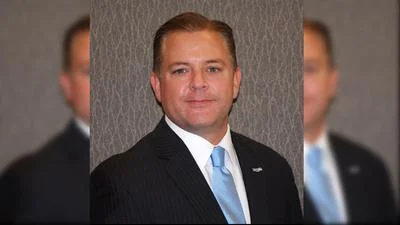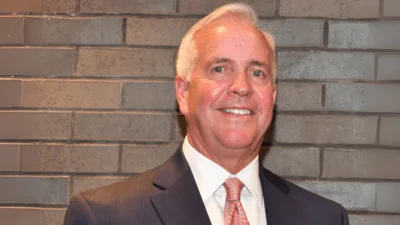“We've gotten new money from the feds and always seem to find more money to spend. We need to be putting some of that toward our debt," said Rep. Mark Batinick. | repbatinick.com
“We've gotten new money from the feds and always seem to find more money to spend. We need to be putting some of that toward our debt," said Rep. Mark Batinick. | repbatinick.com
When it comes Illinois' mounting pension debt, GOP House Floor Leader Mark Batinick (R-Plainfield) wants to see a different approach in Springfield.
For Illinois residents, a new Wirepoints special report details that a $530 billion pension shortfall translates to a $110,000 bill on average for each of the state’s 4.9 million households.
“We certainly need to start taking this seriously and no longer kicking the can down the road,” Batinick told the Will County Gazette. “The biggest problem has been skipping payments. We did that for decades, and are still shorting the system now. People think getting reelected for spending money now and not worrying about the future is the way to go. But eventually the future becomes the present and you have to deal with it.”
At the same time, the state has seen its credit rating plummet into being the worst in the country and its property taxes climb to the second highest across the nation, spurring more and more one-time residents to head for the exits to the point of the state suffering the second largest population decline in the country over the last decade.
Batinick insists the time for action is now.
“I would expand the pension buyouts, which is a concept I brought up a few years ago,” he added. “We've gotten new money from the feds and always seem to find more money to spend. We need to be putting some of that toward our debt.”
Of the $530 billion hole, Illinois owes $313 billion to five state-run pension funds, $55 billion to state retiree health insurance, $9 billion to state pension obligation bonds, another $122 billion is to Chicago and Cook county pensions and retiree health and $32 billion to other government pensions and retiree health.
With Pew Charitable Trusts now estimating that only 39 percent of the state-level pensions are funded — the lowest percentage in the country — Batinick still holds out hope that lawmakers can put forth a successful plan that doesn’t leave taxpayers feeling abused.
“I don’t think that's a really big problem, but it will take prioritizing our debt and making paying off our debt a priority,” he said.





 Alerts Sign-up
Alerts Sign-up